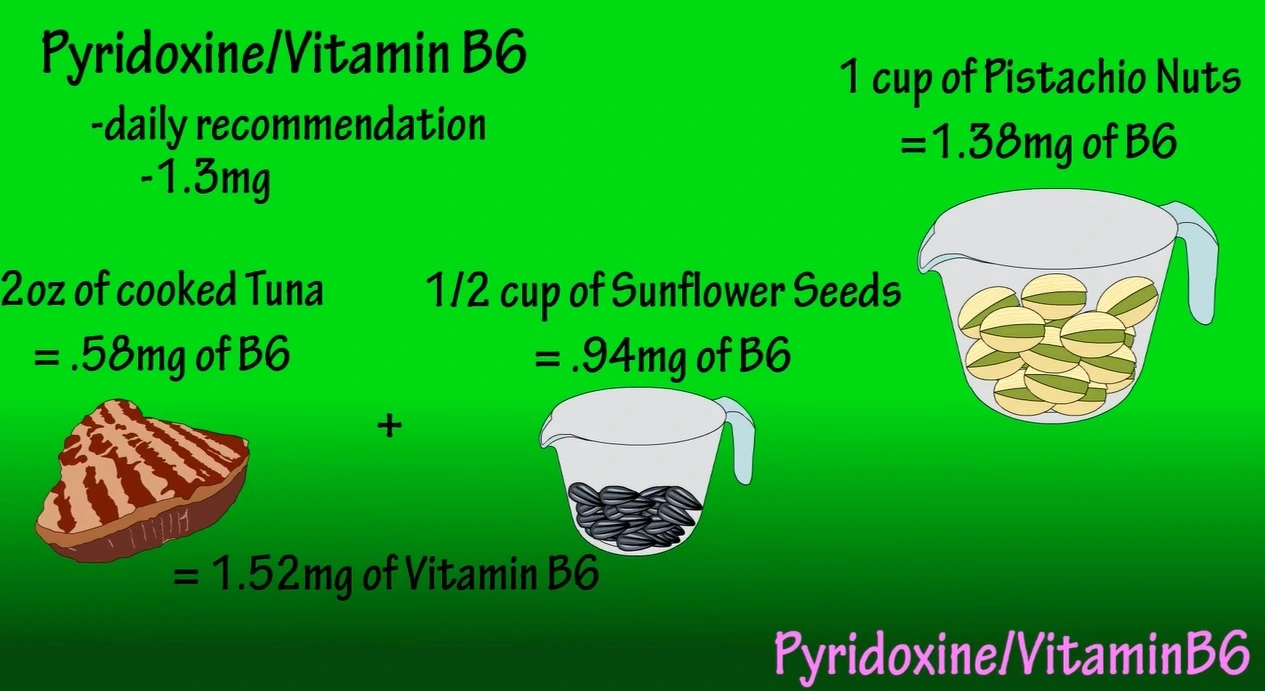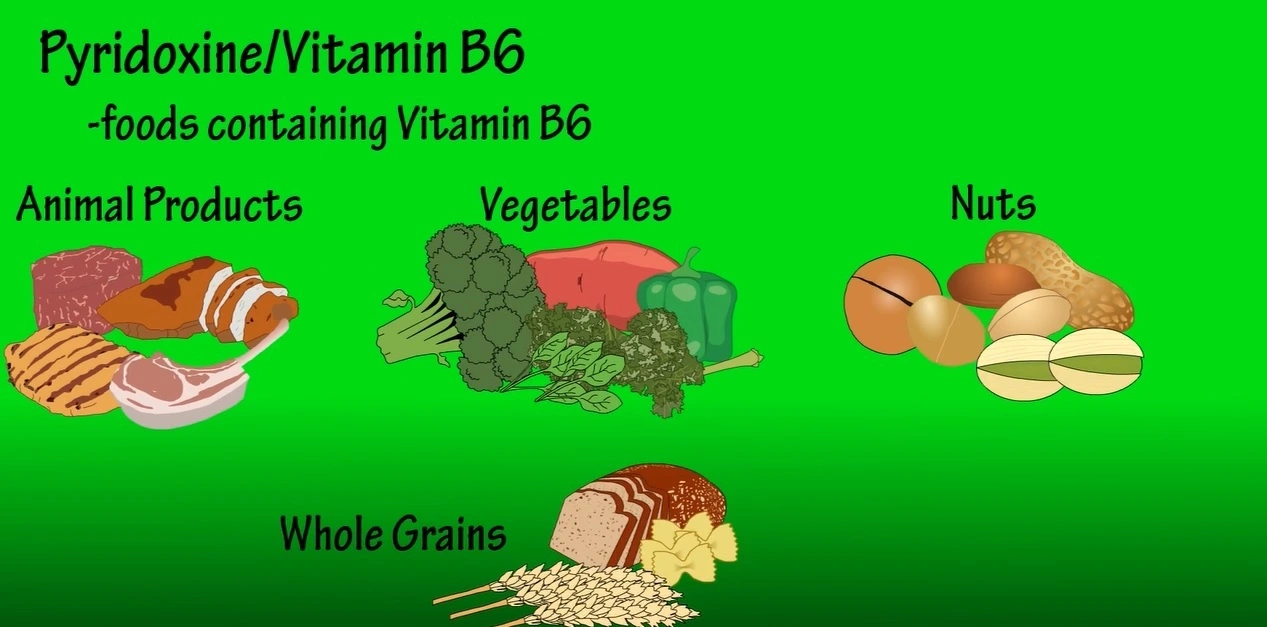Introduction
When it comes to maintaining good health, vitamins play a crucial role. Among the various vitamins, Vitamin B6 stands out for its numerous health benefits and essential functions in the body. In this comprehensive guide, we will delve into what Vitamin is, its benefits, dietary sources, and answer some frequently asked questions to help you understand this vital nutrient better.
What is Vitamin B6?
Vitamin B6, also known as pyridoxine, is a water-soluble vitamin that is part of the B-vitamin family. It is essential for various physiological functions, including metabolism, brain development during pregnancy and infancy, and immune function. Since the human body cannot produce Vitamin B6, it must be obtained through diet or supplements.
Benefits of Vitamin B6
1. Supports Brain Health
Vitamin B6 is crucial for cognitive development and brain function. It helps in the production of neurotransmitters, which are chemicals that transmit signals in the brain. Adequate levels of Vitamin are associated with improved mood, prevention of cognitive decline, and reduced risk of depression.
2. Promotes Heart Health
Vitamin B6 helps reduce homocysteine levels in the blood, a compound linked to an increased risk of heart disease. By keeping homocysteine levels in check, Vitamin helps maintain cardiovascular health and lowers the risk of heart-related conditions.
3. Boosts Immune System
A strong immune system is essential for fighting off infections and diseases. Vitamin B6 plays a pivotal role in supporting immune function by aiding in the production of white blood cells and maintaining lymphoid organs.
4. Reduces Symptoms of PMS
Many women suffer from premenstrual syndrome (PMS), which includes symptoms like mood swings, irritability, and bloating. Vitamin has been shown to alleviate these symptoms by influencing neurotransmitters that regulate mood.
5. Aids in Hemoglobin Production
Hemoglobin is the protein in red blood cells that carries oxygen throughout the body. Vitamin is necessary for hemoglobin production, which helps prevent anemia and ensures that tissues and organs receive adequate oxygen.

Dietary Sources of Vitamin B6
Incorporating a variety of foods rich in Vitamin B6 into your diet can help you meet your daily requirements. Some of the best sources of B6 Vitamin include:
- Poultry: Chicken and turkey are excellent sources of B6 Vitamin.
- Fish: Salmon, tuna, and other fatty fish are rich in this vitamin.
- Vegetables: Potatoes, spinach, and carrots provide a good amount of Vitamin.
- Fruits: Bananas and avocados are tasty options that contribute to your daily intake.
- Whole Grains: Brown rice and whole wheat bread are nutritious sources.
- Nuts and Seeds: Sunflower seeds, peanuts, and sesame seeds are also rich in Vitamin.
Recommended Daily Allowance
The recommended daily allowance (RDA) for B6 Vitamin varies depending on age, gender, and physiological conditions such as pregnancy and lactation. On average, adults need about 1.3 to 2.0 mg of Vitamin per day. It’s essential to consult with a healthcare provider to determine the appropriate intake for your specific needs.
Signs of Vitamin B6 Deficiency
A deficiency in B6 Vitamin can lead to various health issues, including:
- Anemia
- Dermatitis
- Depression and confusion
- Weakened immune function
- Peripheral neuropathy
If you experience any of these symptoms, it’s crucial to seek medical advice and consider adjusting your diet or taking supplements.
FAQ about Vitamin B6
Q1. Can Vitamin B6 help with morning sickness?
Yes, Vitamin is often recommended to pregnant women to help alleviate symptoms of morning sickness. However, it’s important to consult with a healthcare provider before starting any new supplement.
Q2. Are there any risks associated with taking Vitamin supplements?
While Vitamin is generally safe, excessive intake through supplements can lead to nerve damage over time. It’s important not to exceed the recommended dosage and to discuss supplementation with a healthcare provider.
Q3. Can Vitamin B6 improve mood and reduce stress?
Vitamin B6 is involved in the production of serotonin, a neurotransmitter that regulates mood. Adequate levels of Vitamin B6 can help improve mood and reduce stress.
Q4. How can I ensure I’m getting enough Vitamin in my diet?
Eating a balanced diet that includes a variety of Vitamin B6-rich foods such as poultry, fish, vegetables, fruits, and whole grains can help ensure you meet your daily requirements.
Q5. Is it possible to get too much Vitamin B6 from food?
It’s unlikely to get too much Vitamin from food alone. However, high doses from supplements can cause adverse effects. It’s best to stick to the recommended daily allowance unless advised otherwise by a healthcare provider.
Q6. How does Vitamin B6 interact with other vitamins and minerals?
Vitamin works synergistically with other B vitamins, such as B12 and folate, to support various bodily functions. Ensuring a balanced intake of all essential nutrients is important for overall health.
Q7. Can Vitamin help with carpal tunnel syndrome?
Some studies suggest that Vitamin may help reduce symptoms of carpal tunnel syndrome, but more research is needed. Consult with a healthcare provider for personalized advice.
Q8. What are the best sources of Vitamin B6 for vegetarians and vegans?
Vegetarians and vegans can obtain Vitamin from plant-based sources like bananas, avocados, spinach, potatoes, and whole grains. Fortified cereals and nutritional yeast are also good options.
Q9. How does Vitamin B6 support metabolic health?
Vitamin plays a key role in metabolizing proteins, carbohydrates, and fats, making it essential for overall metabolic health and energy production.
Q10. Is Vitamin B6 important for skin health?
Yes, Vitamin contributes to healthy skin by helping maintain proper cellular function and reducing inflammation. It can also aid in the management of certain skin conditions like dermatitis.
Vitamin B6 is a vital nutrient that supports numerous bodily functions, from brain health to immune system strength. Ensuring an adequate intake through a balanced diet can help maintain your overall health and prevent deficiencies. If you’re considering supplements, it’s important to consult with a healthcare provider to determine the right dosage for your individual needs. Remember, a healthy lifestyle and balanced diet are key to achieving optimal health.

